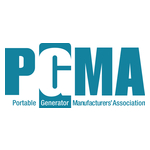
Prepare Now for Safe Portable Generator Use During Hurricane Season
Industry group details best practices to avoid carbon monoxide poisoning
CLEVELAND–(BUSINESS WIRE)–Hurricane season is here, bringing with it increased use of portable generators. While portable generators are life-saving emergency safety tools, their incorrect use can lead to carbon monoxide poisoning and even death. The Portable Generator Manufacturers’ Association (PGMA) wants to help prevent these tragic outcomes.
Take it Outside™ is a program developed to help keep portable generator owners and their families safe. Residents in at-risk states are encouraged to start thinking now, ahead of storms, about how to safely use generators and, specifically, where they can be safely positioned outside. Much like creating a strategy ahead of a house fire, it’s at times like this, before a storm strikes, that action is needed.
The Take it Outside program emphasizes that the only safe way to operate a portable generator is by taking it outside, but its location outdoors is important, too. Positioning it far away from structures, doors, and windows to prevent carbon monoxide poisoning is vital for safe operation. Planning where you will position your alternative energy source – and ensuring you have an extension cord long enough to accommodate this safe distance – is mandatory to keep people safe from the colorless, odorless threat of carbon monoxide.
It’s important to always read and follow the portable generator operator’s manual before operating. Carbon monoxide can quickly build up and linger for hours, even after the generator has shut off.
DO NOT run a portable generator inside homes, garages, basements, crawl spaces, sheds or any other partially enclosed space even if using fans or opening doors and windows for ventilation. ALWAYS place a portable generator downwind, far away from windows, doors and vents, and point the engine exhaust away from enclosed or partially enclosed spaces.
Install battery-operated carbon monoxide alarms or plug-in carbon monoxide alarms with battery backup according to the manufacturer’s instructions.
If you feel sick, dizzy or weak while using your portable generator, shut it off and get to fresh air immediately. See a doctor, as you may have carbon monoxide poisoning.
Review PGMA’s safety materials, make a plan, and practice the plan.
About PGMA
The Portable Generator Manufacturers’ Association (PGMA) is a trade association that seeks to develop and influence safety and performance standards for our industry’s products. www.pgmaonline.com.
Contacts
Pete Zeller
216.579.6100 ext. 2
email: pete@CunninghamBaron.com


